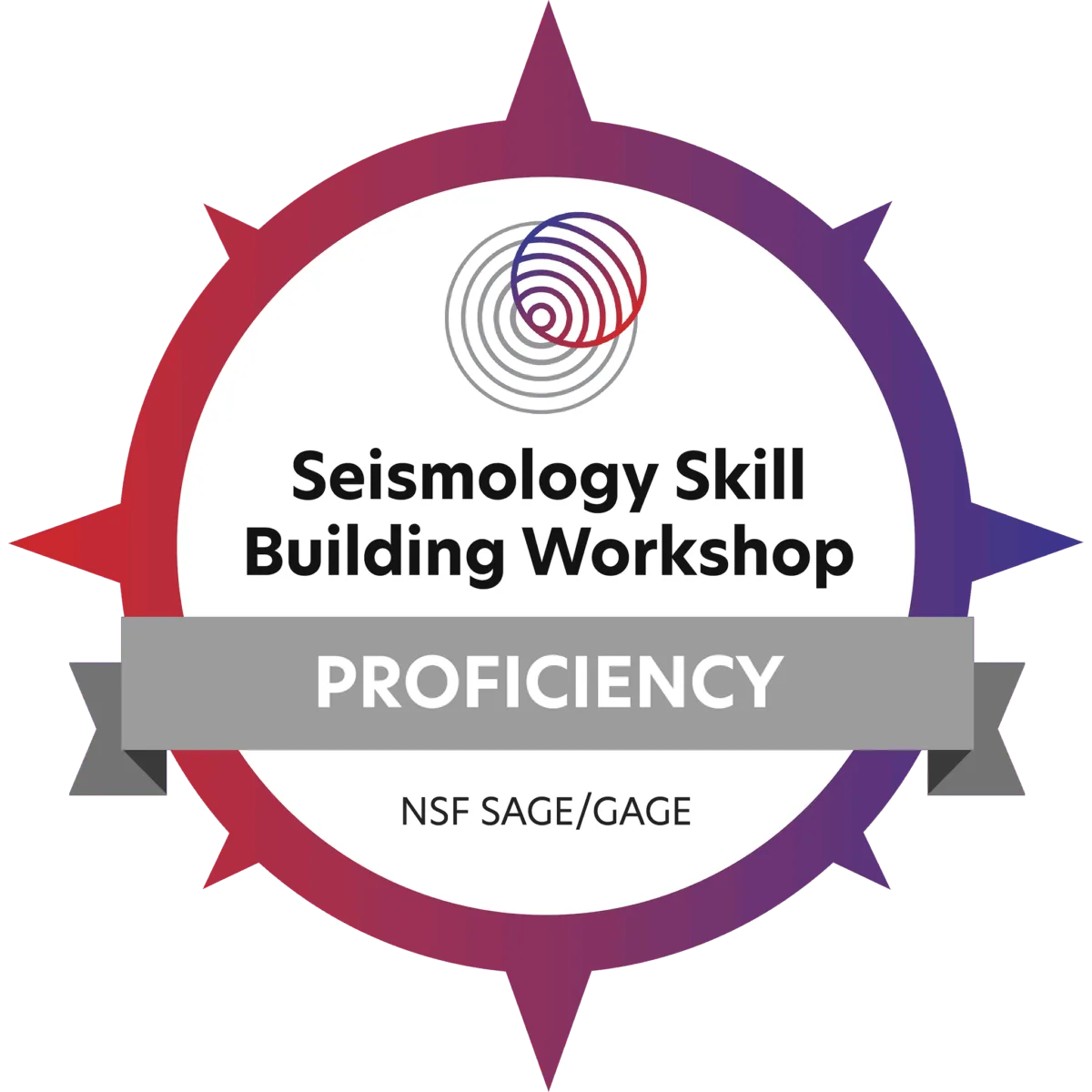EarthScope Consortium offers technical short courses, developed in collaboration with the community, to support effective use of NSF GAGE and SAGE Facility tools and data.
These courses serve a broad audience—including researchers looking to update their skills, and early career scientists such as postdocs, graduate students, and advanced undergraduates seeking hands-on experience with the latest techniques.
Explore individual course details and access past materials on our Calendar page. Recorded, when available, are organized into playlists on our YouTube channel.
Stay in the loop about upcoming courses, deadlines, and training opportunities in geophysics and cloud computing, join our mailing list or follow us on social media.
Questions or course ideas? Contact us at courses@earthscope.org.

Showcase your skills with EarthScope’s digital credentials!
Participants who complete our technical courses can earn a verifiable, shareable credential that reflects their successful completion of course requirements and links to a list of knowledge and skills associated with that course. These badges are issued online and can be displayed on resumes, personal profiles, and social media platforms to support your ongoing professional development.
Typical Courses Offered
EarthScope offers a range of technical short courses between May and September each year. Most are currently held virtually. Applications typically open 1–2 months prior to each course, and capacity is limited to ensure a high level of interaction with instructors.
Want to be notified when applications open? Sign up for our course announcement mailing list
Seismology Skill-Building Workshop
A ~70-hour online course designed to strengthen scientific computing and computational thinking skills through work with seismic data. The course introduces key seismological and computational concepts, emphasizing how seismologists approach data and methodologies. Students use real datasets in interactive tutorials and apply best practices in data analysis.
Intro to Generic Mapping Tools (GMT) for Geophysics
This course introduces GMT 6 for geodetic applications using UNIX shell scripting, along with introductory content on Python wrappers. It often serves as a prerequisite for the GMTSAR InSAR course.
InSAR Processing and Theory using GMTSAR
An annual course covering the theory and application of repeat-pass Synthetic Aperture Radar Interferometry (InSAR) with GMTSAR software. Includes hands-on processing and interpretation of InSAR datasets.
Using MsPASS for Data Processing on HPC and Cloud Systems
This course introduces students to MsPASS, a scalable seismic data processing toolkit. Topics include data handling, performance optimization, and use in high-performance and cloud environments.
GNSS Data Processing and Analysis with GAMIT/GLOBK and trackK
Offered every two years, this course supports researchers processing GNSS data or interpreting GNSS-derived products. It provides hands-on experience with GAMIT/GLOBK and trackK software packages.
InSAR Processing and Analysis (ISCE+)
This course covers both basic and advanced InSAR topics, including processing with the JPL/Caltech ISCE software, noise mitigation strategies, access to ARIA standard products, time-series analysis with MintPy, pixel offset tracking, and foundational data interpretation techniques.
Magnetotelluric Instrumentation and Data Processing
A 5-day short course focused on Magnetotelluric (MT) theory and application. Participants gain hands-on experience with MT instruments managed by the EarthScope Primary Instrument Center (EPIC) and explore emerging software tools for MT data processing and research. Includes field demos, lectures, exercises, and group discussions.
Multi-GNSS Precise Point Positioning and PRIDE PPP-AR
This course explores the use of Precise Point Positioning (PPP) in geodesy, seismology, aerial photogrammetry, engineering, and meteorology. Participants gain experience using the PRIDE PPP-AR software for high-precision applications.

